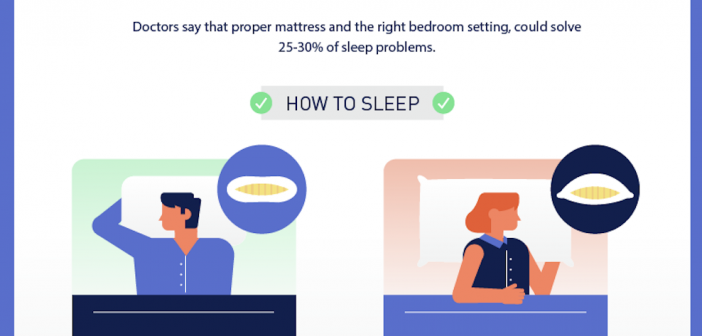Getting in a cozy bed is something many people look forward to at the end of a long day. Once they get there, a good night’s sleep may unfortunately just be a dream. On average, about 35 percent of American adults report getting less than seven hours of sleep each night.
If you want to figure out why you aren’t getting enough sleep, you might just need to go look in a mirror. Your daily habits, diet, and bedroom have a big impact on how well you sleep at night. If bad sleep is plaguing you, these five things you’re doing could be to blame.
1. You’re Eating Wrong
What you eat has more of an effect on you than just around your waistline: your diet could be keeping you up at night. Your belly needs a break during the night as much as you do, and some foods could get in the way. Spicy foods, big meals, and caffeine in your food and drinks can all keep you up at night. But, this doesn’t mean you need to worry about every little thing you eat disrupting your sleep. What matters the most is the timing of what you eat. Keep it light in the hours before you need to go to sleep, and avoid caffeine late in the day.
“Some people might find that a snack can help them fall asleep, but the wrong food might do the opposite,” says Amy Santo, administrator at Smith Ranch Skilled Nursing and Rehabilitation Center. “Avoid eating too much right before bed, or your digestive system might be left working overtime while you’re trying to get some rest.”
2. You’re Drinking Too Much
Alcohol can put you to sleep, but don’t give it any credit as a sleep aid. In fact, it is often just the opposite. When you fall asleep after drinking alcohol, you can miss out on the deep sleep that leaves you feeling rested in the morning. Instead, you might wake up at times during the night and feel more tired the next day.
3. You’re on Your Phone Too Much
Winding down at the end of the day with your smartphone, tablet, or computer in front of your face probably isn’t calming you down as much as you think. Besides the fact that news articles and infuriating social media posts can work you up, the devices themselves keep you awake. Studies have shown that the blue light emitted from these screens suppresses the secretion of melatonin, a hormone that helps you sleep.
4. Your Room Is Too Hot (or Too Cold)
If you’ve ever laid awake for what seemed like hours in a room with no air conditioning, it will come as no surprise that temperature can affect your sleep. But you don’t have to be drenched in sweat to lose sleep. A room that is too warm or too cold can not only make it hard to fall asleep, but it can lead to poor-quality sleep as well. The wrong temperature decreases deep sleep and increases the number of times you wake up during the night.
5. You’re Using the Wrong Pillow
Pillows are an easy target when your sleep doesn’t seem to be going right, but consider yourself justified in using them as a punching bag. Pillows can indeed disrupt your sleep if you are using the wrong one for your body. Side sleepers need a different pillow than stomach sleepers, or neck pain may keep them up at night. Additionally, the correct pillow can make it easier to avoid snoring or alleviate heartburn symptoms that get in the way of sleep.
Adults need a good night’s sleep as much as young people, but it can be harder to obtain. Take a look at your nightly habits and decide if you need to make some changes to help you get more sleep. For 80 eye-opening facts about sleep, take a closer look at this infographic.




